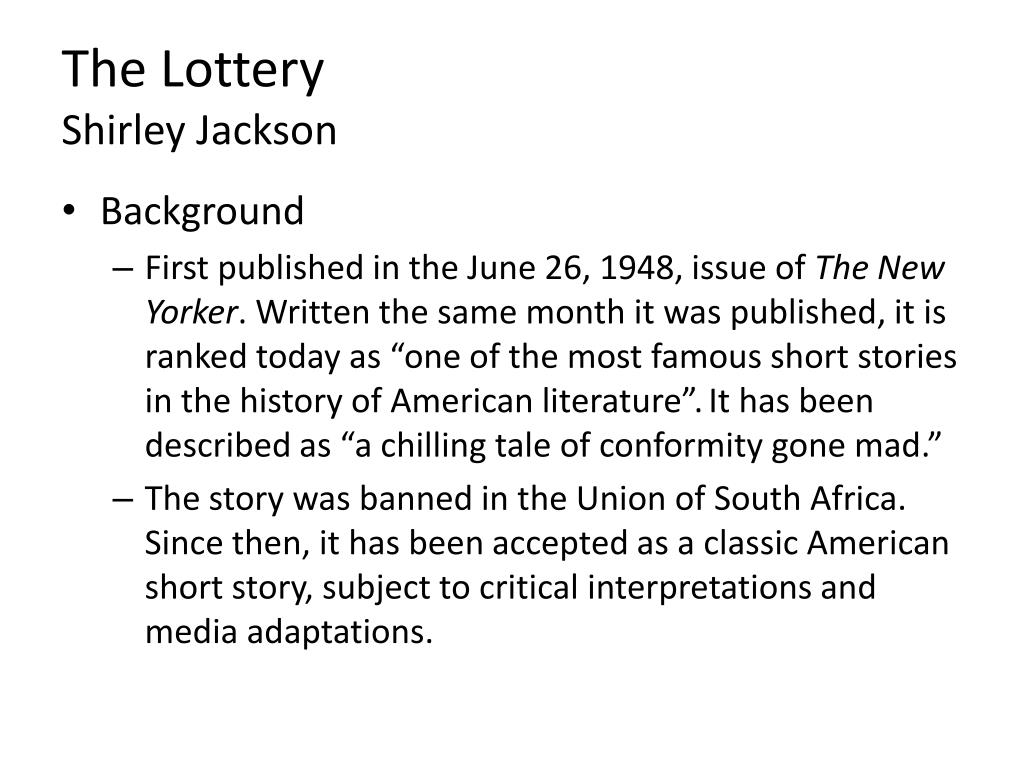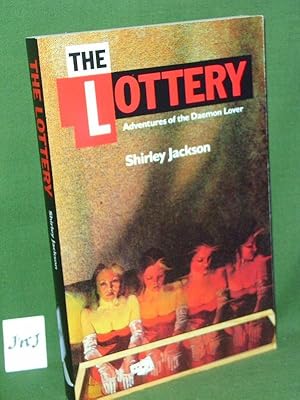


‘Wouldn’t have me leave m’dishes in the sink, now, would you?’ she jokes. Tessie Hutchinson arrives late distracted by her housework, she forgot what day it was. The men assemble next, ‘surveying their own children, speaking of planting and rain, tractors and taxes,’ followed by the women, ‘wearing faded house dresses and sweaters … They greeted one another and exchanged bits of gossip as they wend to join their husbands.’ Jackson sets the scene with her usual economy, depicting how the children, out of school for the summer, gather first, the boys horsing around and choosing ‘the smoothest and roundest stones’ to fill their pockets. Much of it is devoted to a deceptively simple account of exactly how the ritual is conducted. “The story, with shades of The Scarlett Letter, unfolds in Jackson’s signature plain style, which is perhaps what fooled some of its initial readers into believing it was fact. In the wonderful biography, Shirley Jackson: A Rather Haunted Life, Ruth Franklin observed: Contemporary editions market the collection more simply as The Lottery and Other Stories.

James Harris appears as a character in about half of the stories, which links them to one another. The story was first published under the titled The Lottery, or the Adventures of James Harris. “Millions of people, and my mother had taken a pronounced dislike to me,” Jackson claimed.

Quickly becoming the most controversial story ever published by The New Yorker, readers not only canceled subscriptions but sent hate mail to the author via the magazine. The story earned rave reviews from editors and critics though readers weren’t as pleased. Jackson made readers uncomfortable not only through the matter-of-fact violence of the story - even the victim’s little son has his pebbles ready - but also through implicitly questioning American innocence after the war: Would we too be ‘good Germans,’ going along with atrocity?” One person in the community is selected by lot each summer to be publicly stoned to death. “Set in a small New England town like North Bennington, ‘The Lottery’ is about ritual sacrifice and scapegoating. Elaine Showalter describes it in A Jury of Her Peers: “The Lottery” is the story of a fictional small town that hosts a ghastly annual stoning ritual. Jackson wrote it only three weeks before its publication in the The New Yorker, “on a bright summer morning as I was pushing my daughter up the hill in her stroller.” “The Lottery” (1948) is Shirley Jackson‘s best-known short story it could be argued it’s her most famous classic - even more widely read than The Haunting of Hill Houseor We Have Always Lived in the Castle. Once published, the story quickly catapulted her to fame- or, more accurately, notoriety.


 0 kommentar(er)
0 kommentar(er)
